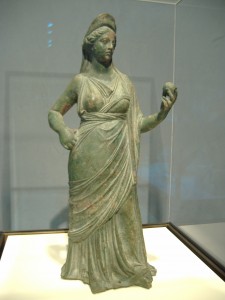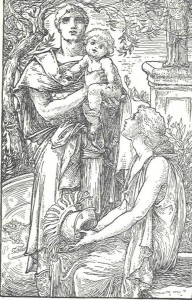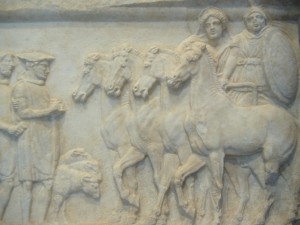Ancient World Now….five days…..
June 9th, 2010 — Gwen MinorPodcast launch date: Monday, June 14, 2010.
First episode:Â The Iliad 20-30 minute podcast.

Leading the Greek forces against Troy is Agamemnon, the king of Mycenae. The goddess Artemis demands that he sacrifice his daughter. This Roman fresco shows the Sacrifice of Iphigenia. This act sets off a chain of events chronicled in some of the most wrenching stories ever told….
…..but I get ahead of myself! Find out why the doomed king had to do such a dirty deed in the maiden podcast of Ancient World Now!










